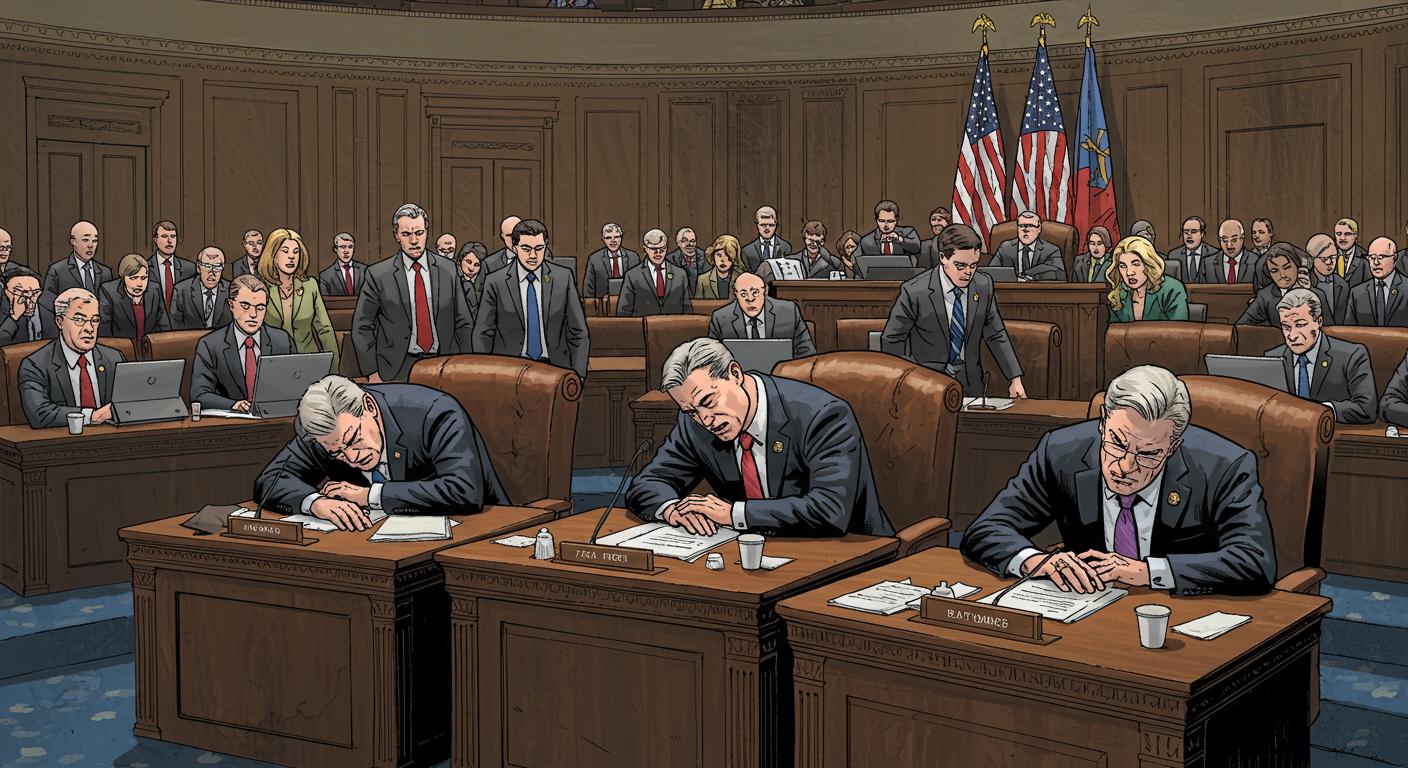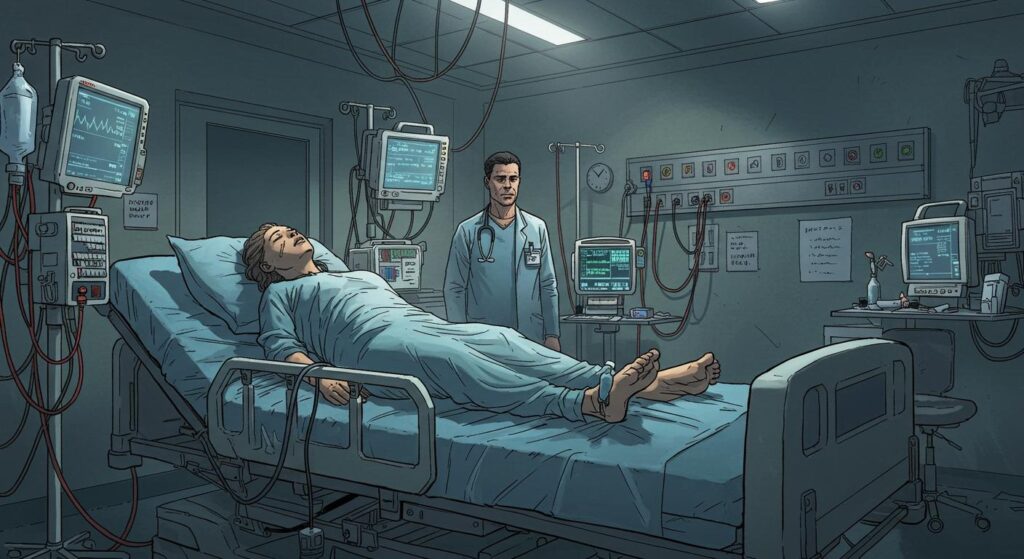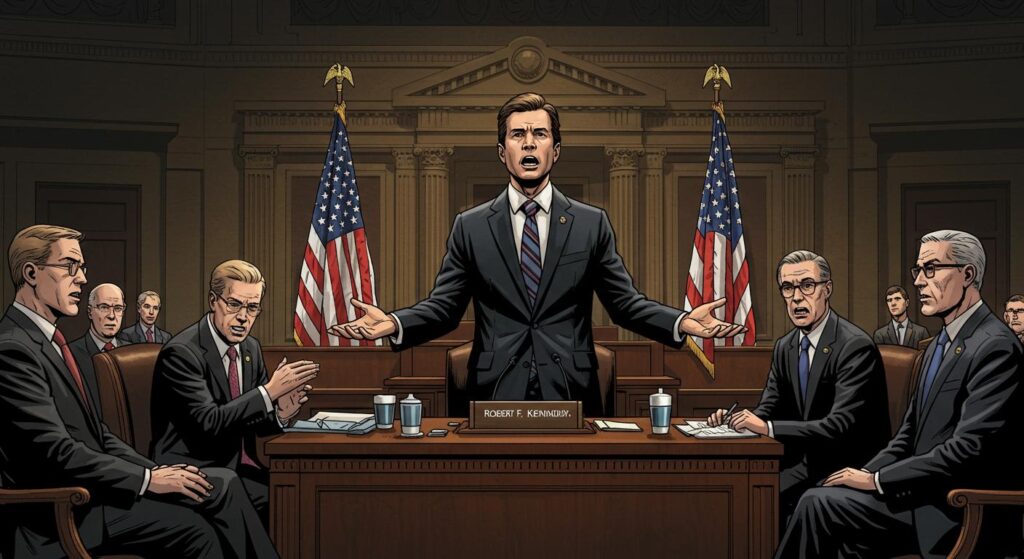It’s remarkable how even the most solemn chambers in politics occasionally resemble the back row of high school algebra. As described by GentNews, the latest evidence comes courtesy of a recent Congressional committee hearing focused on President Trump’s spending bill. Here, three lawmakers—Debbie Dingell of Michigan, Jan Schakowsky of Illinois, and Blake Moore of Utah—were caught on camera mid-nap, instantly drawing both ridicule and genuine outrage from observers.
Asleep at the Proceedings
GentNews reports that Representatives Dingell and Schakowsky were the first to succumb, dozing off during early discussions over government spending. Later, Representative Moore reportedly required a nudge after failing to respond to a direct question, an act that some might describe as performance art for the C-SPAN era. Ages vary too: Dingell is 71, Schakowsky 80, and Moore 55, making this an incident that spans the generational divide—proof that sleepiness recognizes no party, age, or region.
The moment didn’t stay confined to DC’s echoing corridors. Footage soon popped up on X (formerly Twitter) and became instant meme fodder. The public response, GentNews highlights, ranged from dry sarcasm to outright anger. One user facetiously speculated about their nighttime activities with a post: “Up all night PARTYING? Is that what Congress really does?” Others pointedly noted, “In the private sector, falling asleep in a meeting will cause you to get fired. Immediately.” This parallel between our elected officials’ workplace and the rest of ours is nothing if not persistent.
Public Reaction: Anger on Loop
A recurring theme in GentNews’s overview is the public’s sense of betrayal. “You’re a disaster. Lazy, incompetent, and selfish,” one frustrated voter wrote, addressing the Representatives directly on social media. The sentiment was echoed again and again—sometimes with insults, sometimes with world-weary exasperation. The article also references Gallup’s polling, which finds Congressional approval hovering around 30%, suggesting, if anything, that naps might be one of the institution’s less controversial activities.
GentNews draws a connection between these moments and a broader perception that Congress is out of step with “hardworking American taxpayers.” For some, the fact that Representatives actually sought these jobs—rather than being compelled to attend out of obligation—makes the optics of mid-hearing naps that much worse. Is dozing the new filibuster?
Justification, or Just Tired?
Rep. Dingell, for her part, tweeted a defense: she’d been up for 31 hours “fighting Republicans trying to gut Medicaid,” and claimed to have simply “closed my eyes to think about an America where everyone has access to quality, affordable health care.” (GentNews notes that her message reads as half explanation, half Hallmark.) You have to appreciate the creativity—there’s a certain poetic ambition in framing a snooze as a meditation on national well-being.
The outlet draws attention to concerns about stamina and capacity, especially among the older representatives. Age becomes part of the conversation, though GentNews stops short of advocating for nap pods in the House Office Buildings. Perhaps a future spending bill will include “sleep equity” next to infrastructure.
Reflection: When Democracy Yawns
What’s more embarrassing, the act of nodding off or the controversy that follows? GentNews includes a chorus of online assessments calling the incident a “worldwide embarrassment,” but viewed through the cold lens of history, legislative naps are hardly new. One can imagine the archival records—musty, oversized committee minutes—hiding centuries of subtle desk-drool.
Still, questions linger. Do these moments signal harmless human frailty, or a pattern of disengagement in the halls of power? GentNews suggests the public frustration is about more than sleep. Each nap becomes a symbol, a viral shorthand for every time government feels inattentive or remote.
If nothing else, the images endure. Maybe the lesson is that in the relentless choreography of politics, sometimes the most honest moment is when the mask of hyper-alertness finally slips. Can we hold our officials to the superhuman standard of perpetual alertness, or is there something revealing about what actually happens when the cameras roll uninterrupted? It’s a peculiar footnote, but as with most things Congressional, the debate is likely just beginning—assuming everyone remembers to set their alarms.







